Edited Volumes
-
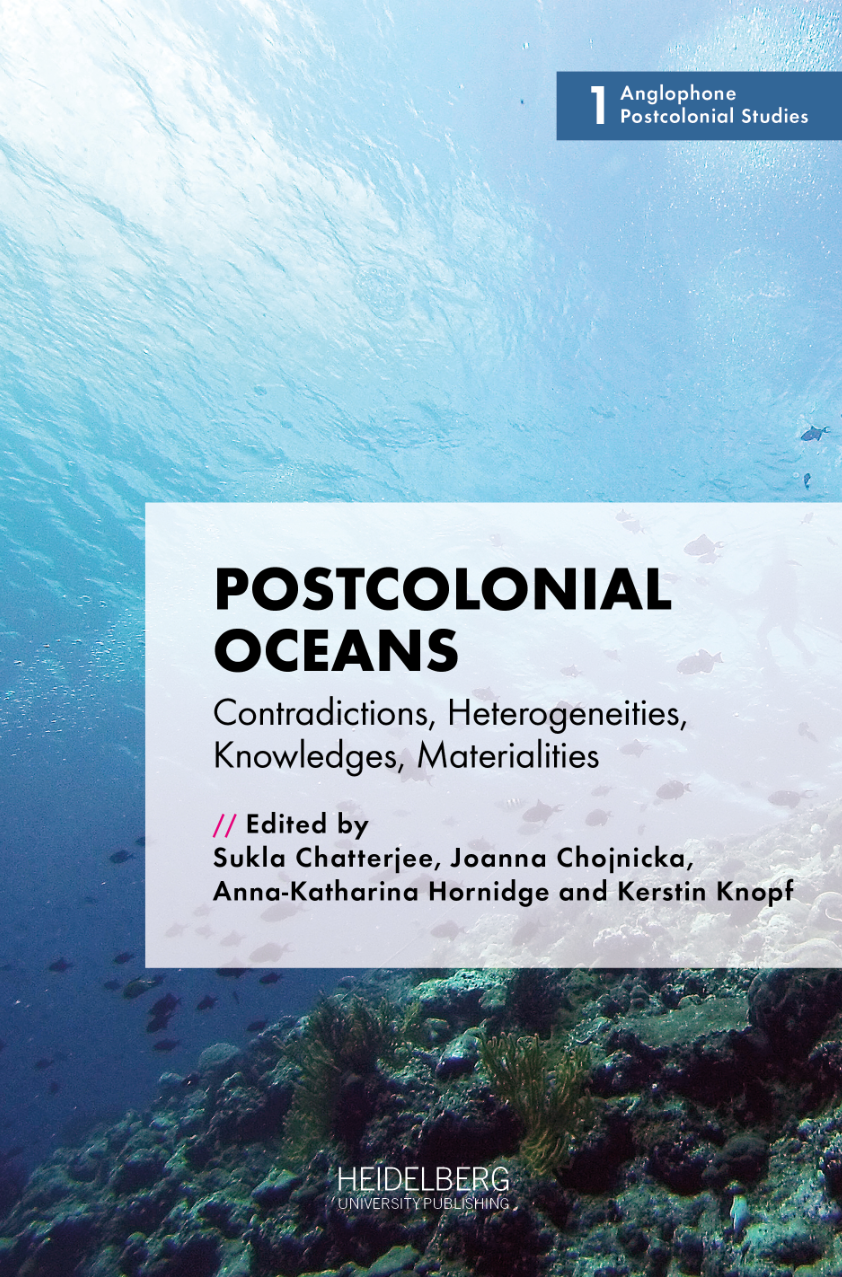 Postcolonial Oceans. Contradictions, Heterogeneities, Knowledges, Materialities
Postcolonial Oceans. Contradictions, Heterogeneities, Knowledges, MaterialitiesThis book contributes to the study of oceans, seas, coastal waters, and rivers within blue humanities by broadening, circulating, and interweaving knowledge about such waters, ocean epistemologies, and sea narratives from pluriversal epistemological, geographical, cultural, and disciplinary perspectives. The contributors from Africa, Asia, the Caribbean, Europe, North America and the Pacific explore the interconnections between oceans, coastal areas, rivers, humans, animals, plants, organisms, and landscapes in the fields of cultural history and cultural studies, critical race and postcolonial studies, marine and environmental studies, linguistics, literature, film and media studies.
-
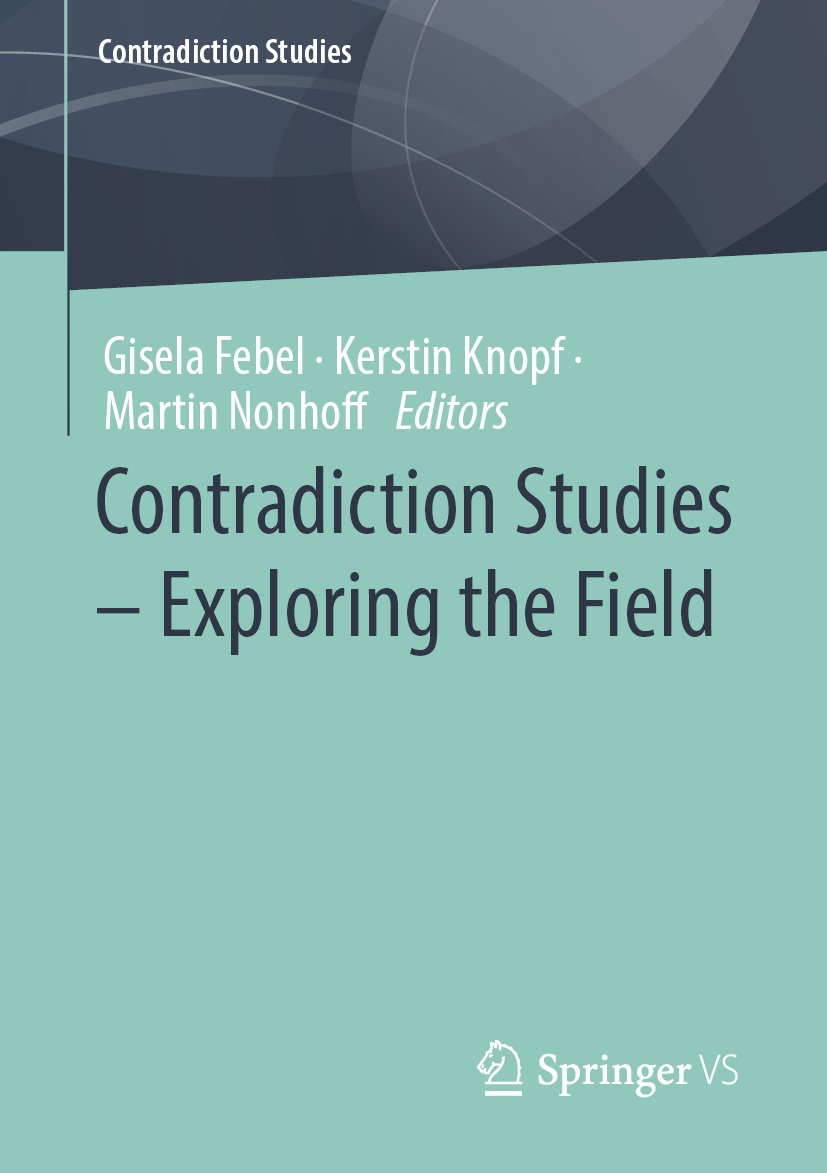 Contradiction Studies – Exploring the Field
Contradiction Studies – Exploring the Field“Contradiction” is a core concept in the humanities and the social sciences. Beside the classical ideas of logical or dialectical contradiction, instances of “lived” contradiction and strategies of coping with it are objects of this study. Contradiction Studies discuss the many ways in which explicit or implicit contradictions are negotiated in different political or cultural settings. This volume collects articles that tackle the concept of contradiction, practices of contradicting and lived contradictions from a number of relevant perspectives and assembles contributions from linguistics, literary studies, philosophy, political science, and media studies.
-
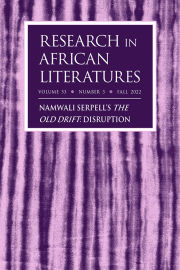 Namwali Serpell’s The Old Drift: Disruption (Special Issue)
Namwali Serpell’s The Old Drift: Disruption (Special Issue)Research in African Literatures, the premier journal of African literary studies worldwide, serves as a stimulating vehicle in English for research on the oral and written literatures of Africa. Reviews of current scholarly books are included in every number, and a forum offers readers the opportunity to respond to issues raised in articles and book reviews.
-
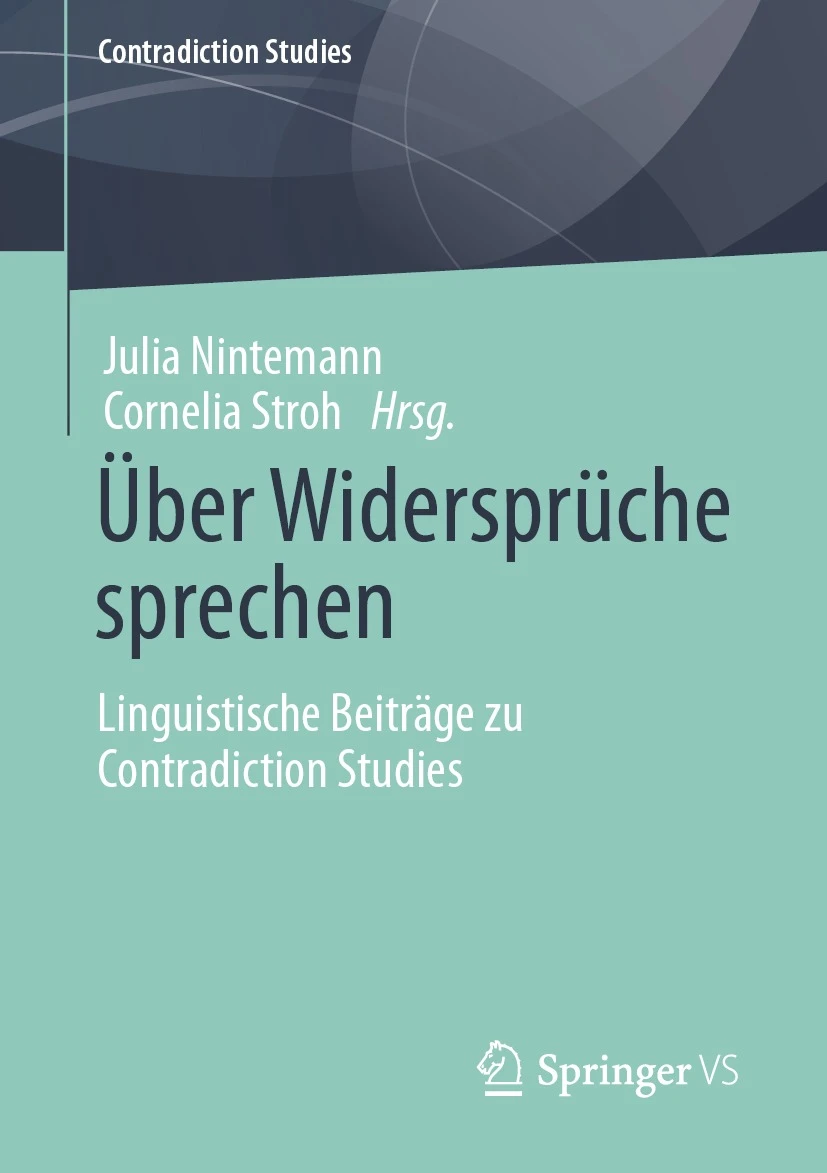 Über Widersprüche sprechen. Linguistische Beiträge zu Contradiction Studies
Über Widersprüche sprechen. Linguistische Beiträge zu Contradiction StudiesDer Fokus des Bandes liegt auf Widerspruch als Gegenstandsbereich, unter den sprachliche Ausdrucksformen von Entgegensetzung, Paradoxie, Lüge und Einspruch ebenso fallen wie linguistische Methoden des Umgangs mit Widerspruch und Widersprüchlichkeiten in der sprachwissenschaftlichen Disziplinengeschichte. Dabei stellt sich die Linguistik nicht als homogene, sondern vielmehr als eine heterogene, vielseitige Disziplin dar, die es erlaubt, den Forschungsgegenstand aus verschiedenen Blickwinkeln zu betrachten; die Beitragenden präsentieren insofern verschiedene innerdisziplinäre Schwerpunkte von linguistischer Widerspruchsanalyse, darunter der Blick auf Sprachhandlungen zum Ausdruck von Widerspruch in wissenschaftlichen, historischen, (post)kolonialen, narrativen oder alltäglichen Diskursen. Es werden einzelsprachliche Untersuchungen nicht nur europäischer Sprachen vorgenommen, sondern auch die crosslinguistische Vielfalt von widerspruchsindizierenden Konstruktionen betrachtet.
-
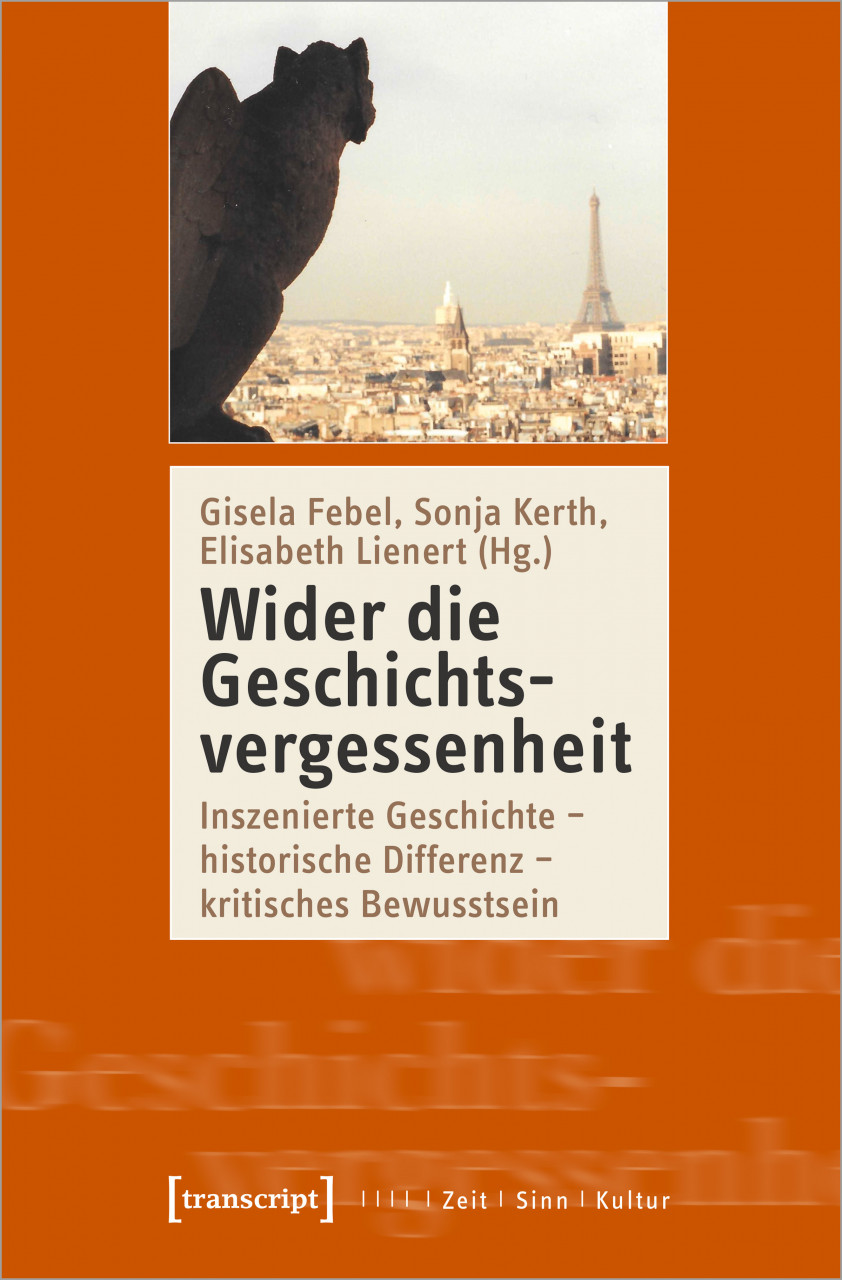 Wider die Geschichtsvergessenheit. Inszenierte Geschichte – historische Differenz – kritisches Bewusstsein
Wider die Geschichtsvergessenheit. Inszenierte Geschichte – historische Differenz – kritisches BewusstseinIn the face of growing populism and right-wing radicalism, the fight against historical forgetfulness in thought and action is once again highly topical. At first glance, however, forgetting history – at least in relation to the pre-modern era – hardly seems to be an issue: The Middle Ages, Renaissance and early modern period are experiencing a boom in novels, dramas and popular media. But here in particular, there is an urgent need for an active response to simplifications, mythifications and falsifications. The contributors to this volume show that it is essential for a critical consciousness to recognize historical difference and media filters and to reflect on their effects.
-
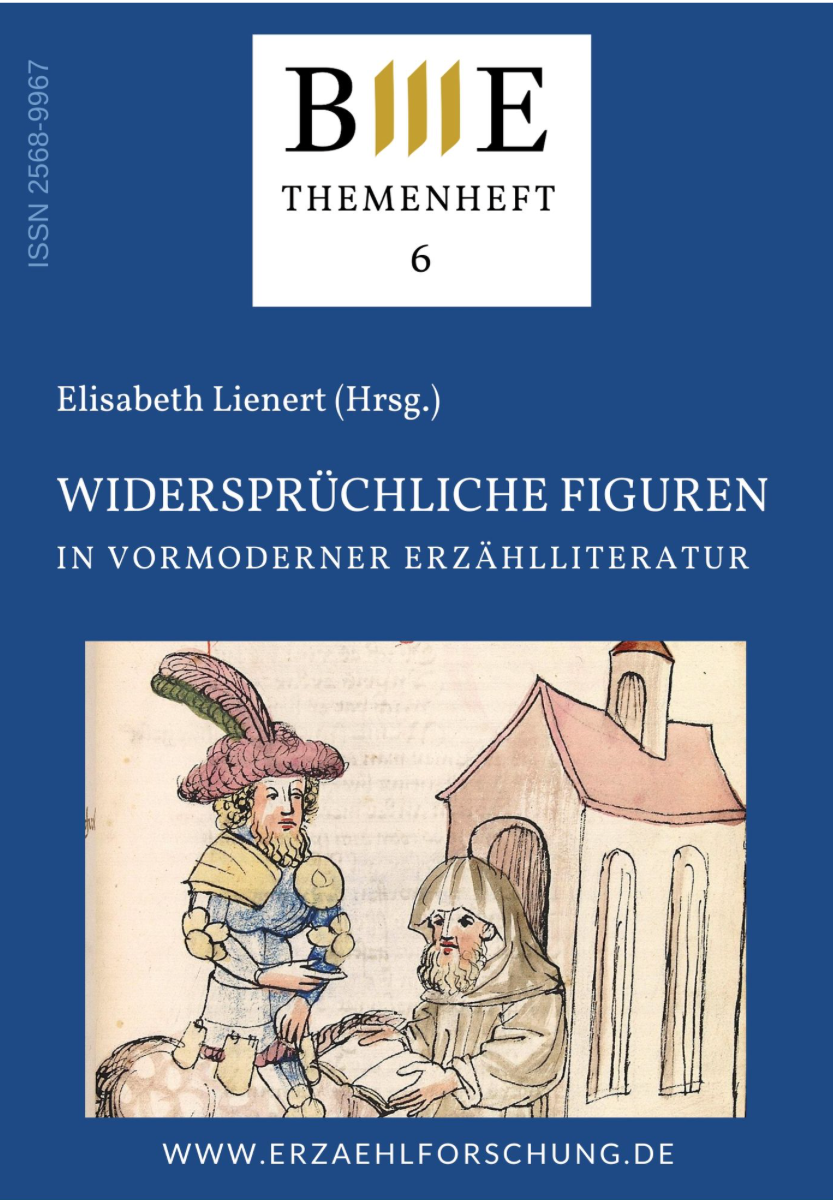 Widersprüchliche Figuren in vormoderner Erzählliteratur
Widersprüchliche Figuren in vormoderner ErzählliteraturContradictory characters are characters whose internal characterization in the text is contradictory or who are designed in and as a contradiction to discourses and traditions external to the text. The volume contains case studies from Virgil to the early New High German prose novel and the modern reception of the Nibelungen, combined with methodological considerations in the field of tension between character narratology, dialog research, historical anthropology and discourse analysis. The peculiarities of medieval-early modern narrative (above all the trans-textuality of many characters and their connection to plot or script) become just as clear as the necessity of reflecting on epochal clichés. The contributions invite us to think further about contradiction as a category of character narratology.
-
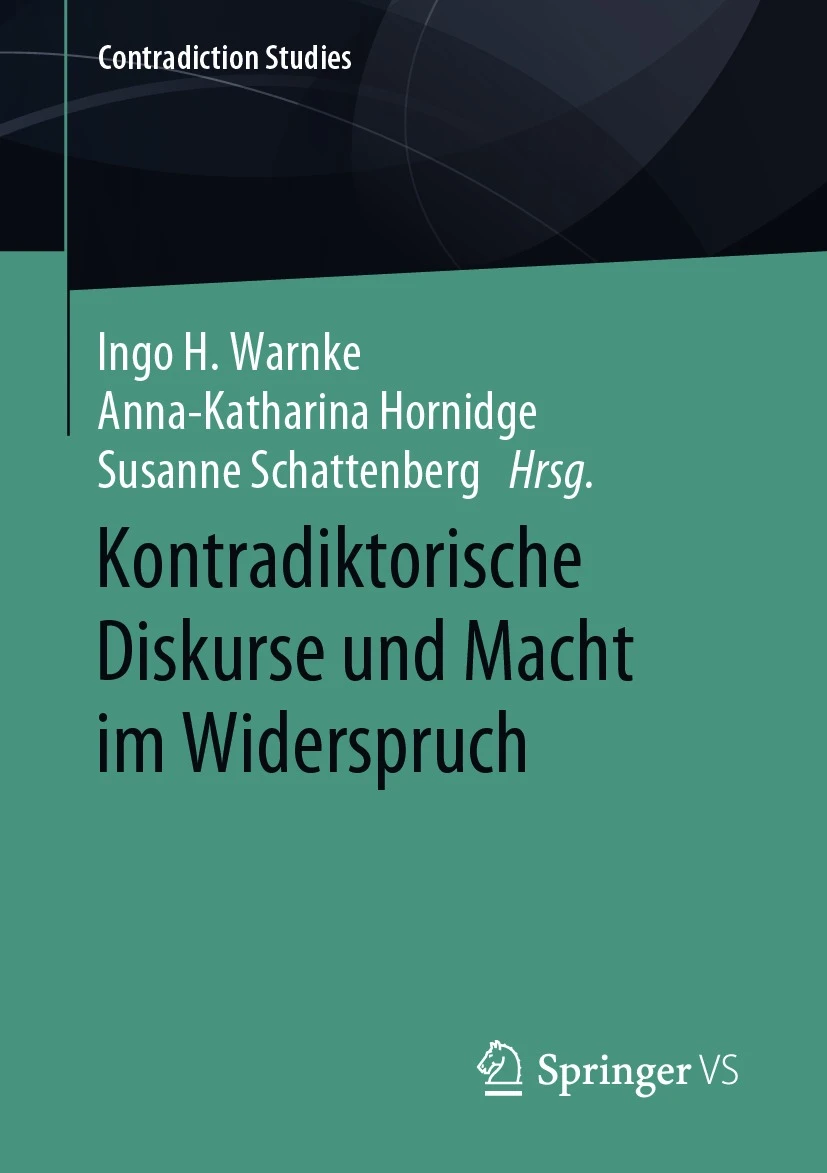 Kontradiktorische Diskurse und Macht im Widerspruch
Kontradiktorische Diskurse und Macht im WiderspruchDer Band behandelt in interdisziplinärer Perspektive Widerspruch unter anderem als einen konzeptionellen Anker von Diskursanalyse und -theorie. Widerspruch ist eine Figur der Ordnung von Wissen und damit Ausdruck von Machtverhältnissen. Akteur*innen, die Widersprüche identifizieren und als solche erst wahrnehmbar machen, sind ebenso in Dynamiken der Widerspruchsdeklaration verwoben wie das, was in einer Zeit als widersprüchlich bestimmt und bezeichnet wird. Die performative Dimension von Widerspruch unter Einschluss des Widersprechens verweist auf historische Normalitätsproduktionen und soziale Hierarchien, in denen das Widersprüchliche stets als Anlass zu seiner Auflösung verstanden wird.
-
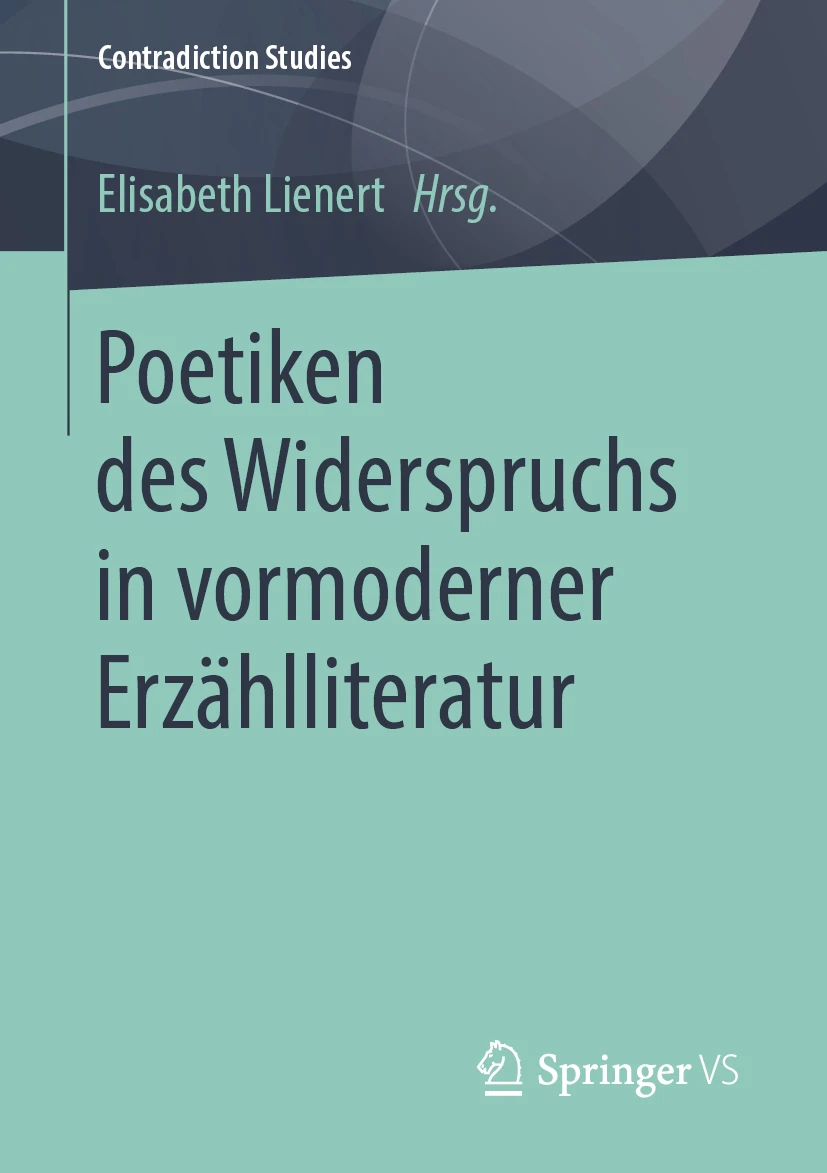 Poetiken des Widerspruchs in vormoderner Erzählliteratur
Poetiken des Widerspruchs in vormoderner ErzählliteraturDieser Band enthält grundsätzliche Überlegungen und textbezogene Fallstudien zu poetologischen Potenzialen von Widersprüchen und Verwandtem in deutschen und europäischen Erzähltexten vom 12. bis zum 17. Jahrhundert. Untersucht werden Akte der Widerrede und Phänomene der Unvereinbarkeit, widersprüchliche Konzeptualisierungen und narratologische Brüche, epistemologische Bedingungen der Wahrnehmung von Widersprüchlichkeit, Aspekte einer Poetologie des Widerspruchs als Mittel der Sinnkomplexion.
-
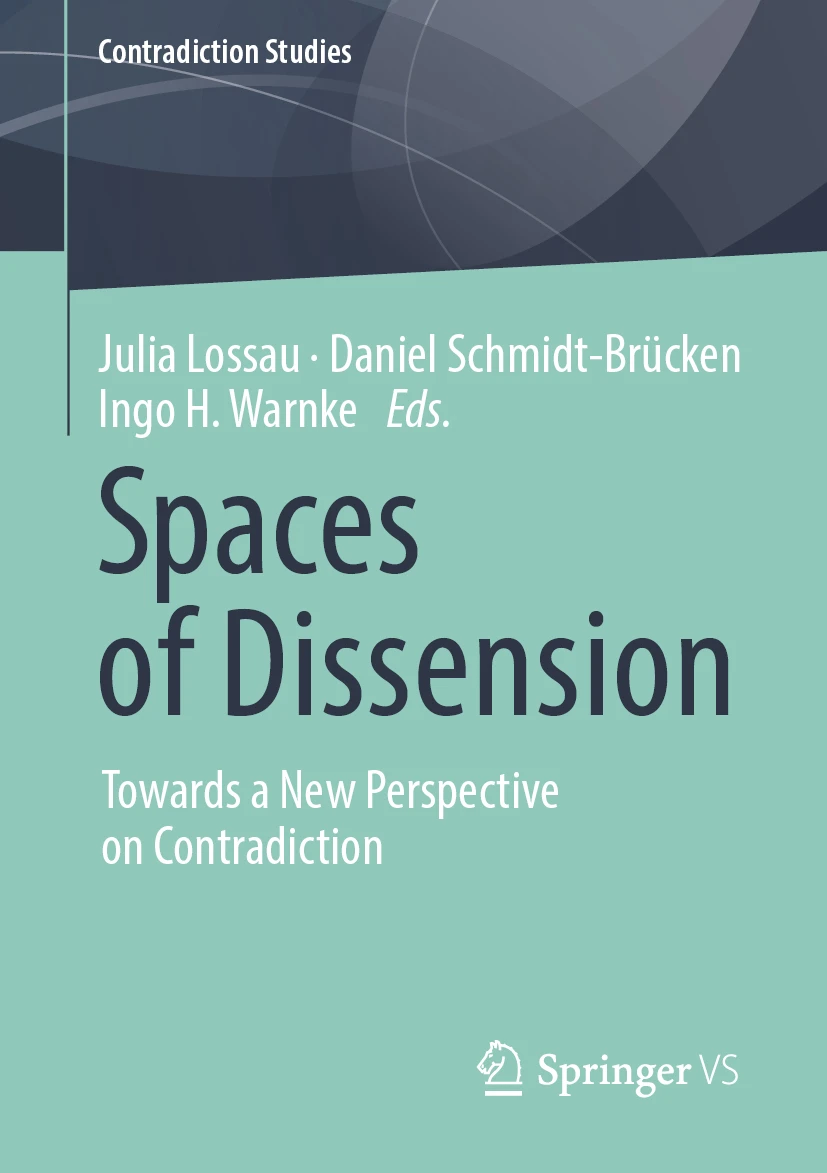 Spaces of Dissension
Spaces of DissensionThis volume focusses on contradiction as a key concept in the Humanities and Social Sciences. By bringing together theoretical and empirical contributions from a broad disciplinary spectrum, the volume advances research in contradiction and on contradictory phenomena, laying the foundations for a new interdisciplinary field of research: Contradiction Studies. Dealing with linguistic phenomena, urban geographies, business economy, literary writing practices, theory of the social sciences, and language education, the contributions show that contradiction, rather than being a logical exemption in the Aristotelian sense, provides a valuable approach to many fields of socially, culturally, and historically relevant fields of research.
-
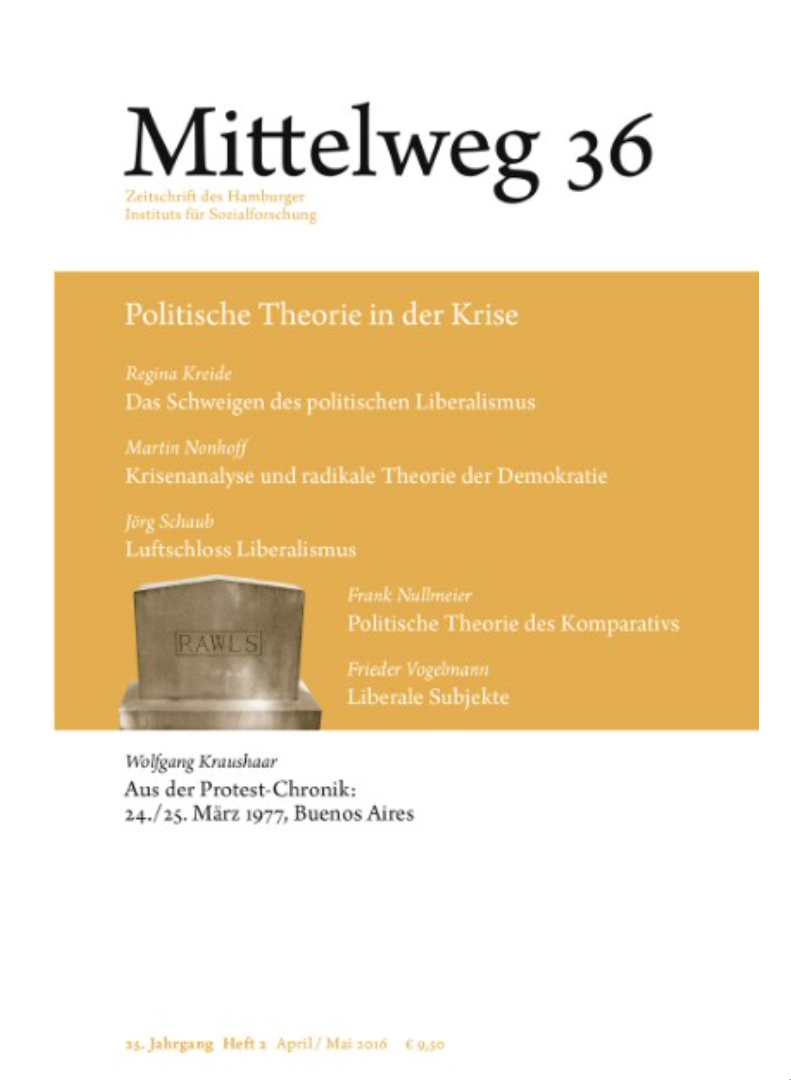 Politische Theorie in der Krise
Politische Theorie in der KriseMartin Nonhoff/Frieder Vogelmann: Editorial (Seite 3); Regina Kreide: Das Schweigen des politischen Liberalismus (Seite 5); Martin Nonhoff: Krisenanalyse und radikale Theorie der Demokratie (Seite 21); Jörg Schaub: Luftschloss Liberalismus. Warum das Denken in Krisenzeiten keinen Halt findet (Seite 38); Frank Nullmeier: Politische Theorie des Komparativs. Soziale Vergleiche und gerechte Gesellschaft (Seite 56); Frieder Vogelmann: Liberale Subjekte Eine affirmative Streitschrift (Seite 74); Wolfgang Kraushaar: Aus der Protest-Chronik: 24./25. März 1977, Buenos Aires (Seite 91)
-
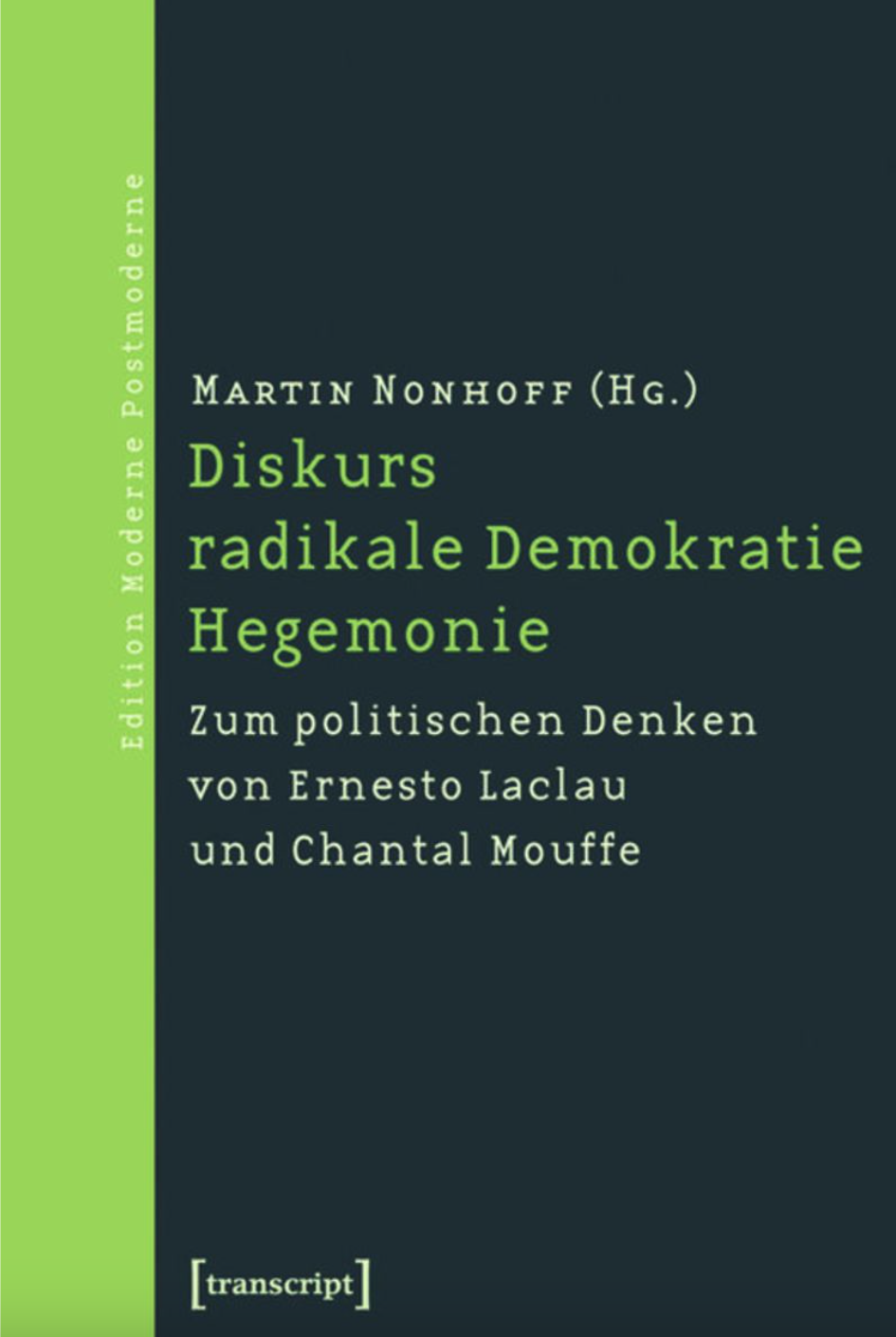 Diskurs – radikale Demokratie – Hegemonie.
Diskurs – radikale Demokratie – Hegemonie.Few political thinkers have influenced the international political and social science theory discourse of recent years as much as Chantal Mouffe and Ernesto Laclau – across paradigm boundaries. Both combine neo-Gramscian, (post-)structuralist and psychoanalytical theoretical elements and thus enable an explanation of political-discursive events, in particular the formation of hegemonies, on the one hand, and a normative theory of agonal democracy on the other.
The contributions in this volume provide an overview of Laclau’s and Mouffe’s key figures of thought, critically examine them and point out methodological and empirical connections.
This volume contains original texts by Ernesto Laclau and Chantal Mouffe, among others.
-
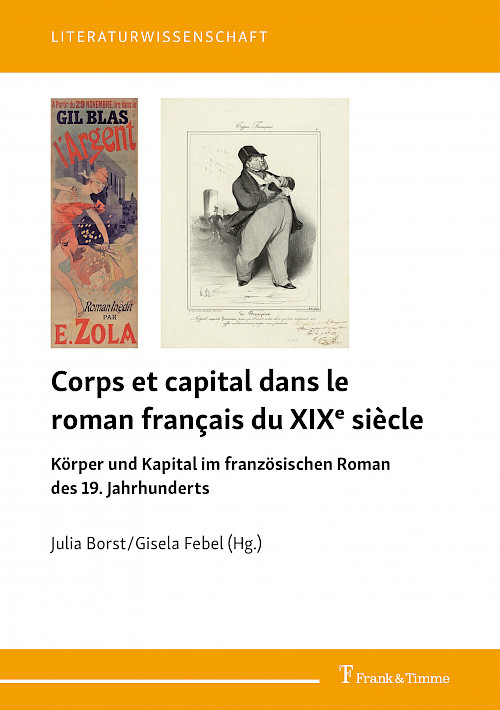 Corps et capital dans le roman français du XIXe siècle. Körper und Kapital im französischen Roman des 19. Jahrhunderts
Corps et capital dans le roman français du XIXe siècle. Körper und Kapital im französischen Roman des 19. JahrhundertsThe living body and the capitalist thinking of the modern economy seem to be irreconcilable objects. Nevertheless, their history and perception have been inextricably linked, at least since the times of industrialization and capitalization in the 19th century. Our volume follows this entangled history and the various contradictions it develops.
Since Pierre Bourdieu, we known that the body forms an incorporated cultural and social capital. It is a commodity and means of production, a sign of belonging to a social class, a place where sex, gender and power relations are negotiated or a pretext for social exclusions and racism. The body is the object of punishments, sanctions and social control, a support for affects, obsessions and illnesses as well as a site of rebellion and resistance. The 19th century novels analyzed in the contributions to this volume tell all this. From the perspective of current body studies, we propose a new reading of the great stories from Balzac to Zola, via Mirbeau, Maupassant, Louise Michel, Georges Sand, Rachilde, Eugène Sue and Huysmans to demonstrate, through their texts, how the images of the body and the policies of capital are entangled and, thus, form a central part of the imagination and the memory of 19th century French (and Northern/Western) society.
Contributions in French and German.